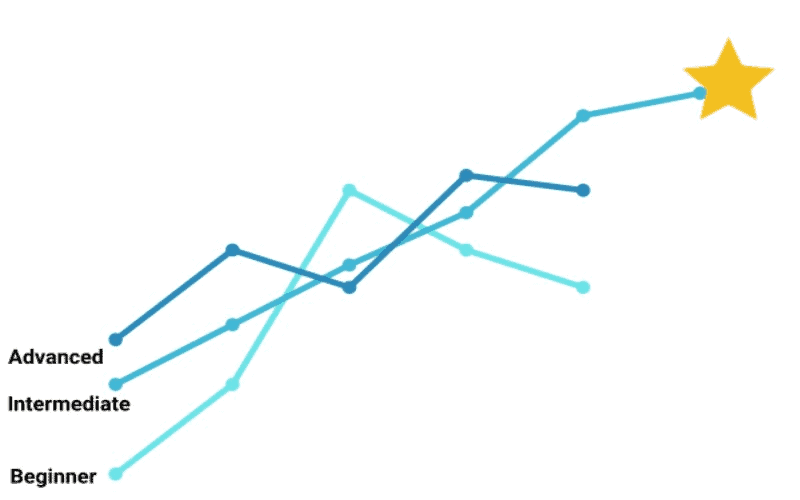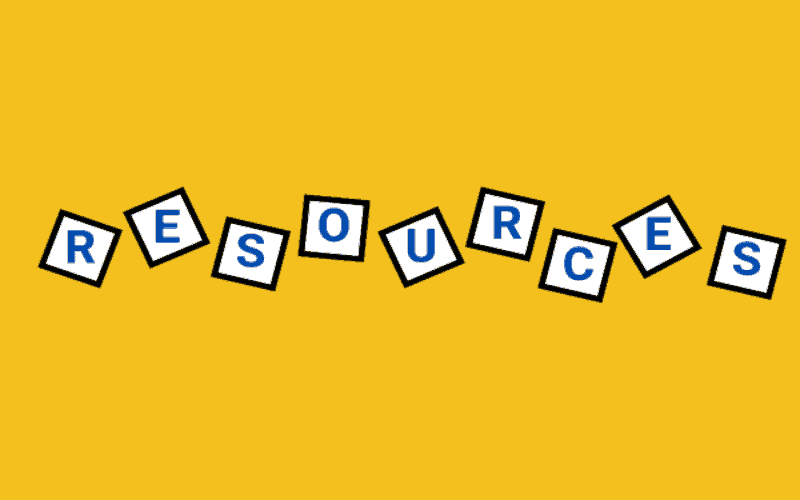UPDATED July 2024

Introduction to Newspaper Research for Genealogy
“Back in the day,” one of the most useful kinds of documentation was the average newspaper. Newspaper research is an incredibly valuable genealogy research tool, because it has content from specific dates that go back decades.
The nice thing about newspapers is that there are amazing archives that you can go through to find out more about anything you’re looking for. Weddings in 1920? The newspapers have those. Deaths on April 1, 2014? You can easily pull those records.
Today, many historical newspapers have been digitized to preserve them. That means that you can take a look at scans (and search them more easily) than you could in the past. In some cases, though, you may need to go to the library or a specific location to check archived documents under the strict eye of those who preserve them.
Importance of Newspaper Databases in Genealogy Research
Newspaper databases are important in genealogy research because of how thorough they are. They provide details such as:
- Biographical information
- Residency information
- Occupations
- Family relationships
- Obituaries
- Court records
- Marriage records
- Birth records
Additionally, newspapers provide articles that give more context to the time people were living in. Without that context, it could be hard to understand parts of the past.

Get started with these simple resources.
Beginner Newspaper Database Research Resources
There are many different newspaper resources you can look into as a beginner. The nice thing about beginner resources is that many are free to you, local, and available if and when you need them.
Overview of Newspaper Databases
Some of the newspaper databases you’ll want to look for as a beginner genealogist include:
- Historical society archives
- Local library archives
- Online newspaper archives
- Genealogy websites
- Google News archives
These sources are often easy to locate, making them perfect for people who are just starting out. Many are local sources, so you will need to reach out to local companies and libraries for more information.
How to Access Newspaper Databases
There are a few ways to access newspaper databases. The exact methods will depend on where you are and what you’re trying to access.
For online subscription services, you’ll log into your paid subscription. You can often get a free trial first, which is great if you have only a small amount of research to do.
For library archives, speak with a librarian about scheduling a time to go through the archives. They will be able to tell you what kinds of archives they have and what you need to do to access them.
If you use Google News Archives, then you can log in for free and do a search. Go to the website and enter your search term to get started.
How to Search Newspaper Databases Effectively
One of the most effective ways to search a newspaper database is by asking for someone to help. Since many of the databases you’ll be working with are at libraries or within historical institutions, you can ask a librarian or other professional to guide you.
If you’re working on your own, you should remember to:
- Start out with all your basic information. Keep track of what you know and what you still need to find out.
- Don’t limit your search to only birth year or death. Look for other important events in your ancestor’s life, too.
- Be flexible when you look at how things are spelled or when making inquiries. Variations can make the difference when you’re looking for historical content.
- Keep a log of what you’ve already searched for.
Tips and Tricks for Beginners
Some helpful tips and tricks for beginners include:
- Using targeted search terms, such as “birth notice” or “obituary” to find specific types of search results.
- Verify the information you find. Browse multiple sources to put the content in context.
- Keep track of what you’re searching for and what you’ve found. Don’t forget to cite where you found it, so you can go back to it later if you want to.

Try building your skills with intermediate techniques.
Intermediate Newspaper Database Research Skills
Sometimes, doing a local search or looking at individual archives isn’t right for your project. If you have a lot of things to research or you need to be very specific, then you may want to use intermediate or advanced search techniques.
Advanced Search Techniques
There are several helpful advanced search techniques you should try to use when looking for your genealogy data. Here are a few:
Narrowing Search Results
There are a few strategies you can use to narrow your search results. The first is to refine your search terms. Be specific.
Next, learn to exclude irrelevant terms. You can use Boolean operators (words such as NOT) and exclude terms directly. For example, say “John Rodgers” NOT “John Doe.”
Additionally, you can narrow your results by looking for articles or data in specific resources. For instance, looking through a person’s hometown newspaper may give you better results.
Analyzing and Cross-Referencing Newspaper Articles
The next thing you’ll want to do to improve your research is to take some time to cross-reference and analyze your findings. Look for minor details that you can confirm with other sources. Cross-reference separate articles or newspapers to get as accurate information as possible. And, start reading between the lines. Think about what else was happening at the time to more effectively “follow the trail.”
Utilizing Other Online Resources in Conjunction With Newspaper Databases
You aren’t just limited to using online newspaper databases when you’re looking up information about past ancestors. In fact, you have all kinds of digital sources, and, depending on how far back your search goes, there may even be people alive who can discuss a person’s life with you. The use of chat and video services can allow you to correspond over the internet even when people are in another country.
Case Studies and Examples
Boolean operators are most helpful when narrowing search results. These include words such as AND, OR, and NOT. If you use AND, the operator will give you results with both terms you included. With NOT, it will exclude your second term. With OR, you will get results with one, both, or either of the key search terms.
More on Boolean Operators:
Advanced Newspaper Database Research Skills
For highly specific research, it’s time to advance your newspaper database research skills. These advanced skills will keep you organized and help you dig down deeper into the rabbit hole.
Building a Research Plan and Workflow
One of the things you may want to do to do as thorough research as possible is to build a research plan and workflow. With the right workflow, you’ll follow the same steps every time you work. With a research plan, you’ll stay on track.
Some steps to follow to build a research plan and workflow include:
- Defining the questions you want to ask.
- Identifying the newspapers you want to look through for research.
- Decide what time period you need to work in.
- Create your own strategy for your work. For example, you might start out searching for a particular keyword, like a name, but you may then work through other options, like using Boolean operators, to get the detailed results you want.
- Staying organized with your own spreadsheet or filing system.
- Analyzing and cross-referencing the information you found online for authenticity and to confirm your findings.
- Evaluate any results you find and then decide to keep or get rid of those results.
Finally, don’t forget to document everything you do. Remember the newspaper name, section, page number, and article to be able to find it again easily in the future.
Analyzing and Interpreting Historical Context
Lots of things have changed over time, so what you can assume might happen after an event today wouldn’t necessarily have been what would have happened in the past. Before you do your research (or in the course of your research) you may want to also spend time learning more about the historical period your ancestor lived in. You will want to consider:
- The geography.
- Important patterns in the way people lived.
- Key events, such as wars, which may have influenced immigration, migration, or other parts of the ancestor’s life.
Once you learn more about the context, you can analyze the findings. For example, if you read a letter about your great-great-great aunt wearing pants while riding a horse, you might realize that it could have been quite a scandal at the time. That could put other findings in context for you.
Identifying and Resolving Conflicting Information
Genealogy comes with one common issue: Conflicting information. It’s completely normal to find that two sources have a conflicting opinion about a person, place, or thing. It’s normal to see two sides to the same story (if not many more).
Imagine that you have two newspapers in your hands. One says that Margaret P. was the first-place winner of a local pie contest. The other says that Margrette P. won first prize. It’s up to you to look at those two papers and see if you believe that they are both talking about the same person or if there was an error. Additionally, you’ll need to use your knowledge and additional sources to determine the correct spelling of that person’s name.
There are steps you can use to help identify conflicting information and resolve it.
- The first thing to do is to identify what you think is conflicting with something else. For example, perhaps you have a story about an ancestor that doesn’t seem to line up with the newspaper reports. Set that conflict aside.
- Next, look at the sources. If you have three sources, which one is most likely to be correct? Someone with first-hand experience is the one who likely knows the truth. The newspaper that heard about a story may be correct, but it may not be. And, of course, gossip columns are not particularly trustworthy.
- You’ll want to corroborate all stories and facts whenever possible. That’s why it’s smart to look through multiple newspapers from the same time period (or even the same day) to find out if stories line up. It’s possible for two journalists to have different opinions, but you’re looking for all the major facts to match.
- Always remember to think about the context of what you’re reading about or looking at. Today’s rules and social norms are not the same as in the past. They are not the same state to state or country to country.
- Make sure to resolve conflicts by cross-verifying information. If you cannot prove something through methods of confirmation, then you may want to use that information in your research. However, you shouldn’t throw out the content. Instead, mark it as questionable and note where you found it, so you can always match it up in the future.
- Document everything. By documenting everything you find, you’re putting yourself in a better position when it comes time to match up information. You may find that something you couldn’t make sense of in the past is easier to understand after you do further research, but you don’t want to realize you’ve misplaced that information.
If you follow these steps, you’ll be in a better position to resolve conflicts. While you may not be able to resolve every conflict, using good methods of analysis, cross-references, and documentation, you should be able to start building the story of your ancestor’s life.
Using Advanced Search Tools and Techniques
When you use a digital source, one of the helpful search techniques is the use of the quotation mark. When you put a phrase into quotation marks, the search engine knows to give you the exact match.
Another advanced search technique is the use of filters. Filters help you filter results into tighter categories.
You will also want to use Boolean and proximity operators. Boolean operators like AND, OR, and NOT, or proximity operators such as NEAR, or IN, help you be more specific during your searches.
Don’t forget, you can always use “wildcards.” These are different spellings or varied searches that are approximate to what you’re looking for.
Case Studies and Examples
Here are some examples of how advanced search tools and techniques help.
Quotation marks: If you search “Margerite James” with quotation marks, you’ll exclude results that are just “Margerite” or just “James.”
Boolean operators: If you use AND, OR, or NOT in your search, you can add or exclude items from your search.
Proximity operators: Proximity operators dictate where you’re looking for something. For example, you can write “Margerite James” IN “Virginia.”
Filters: Filters are a way of filtering down through content. For example, if you search for “Chair,” you can then filter down into “patio chairs, living room chairs, bedroom chairs,” and so on. Using the right filtering technique can help you get tighter results.
Here are some more helpful guides on these advanced search techniques.

Resources to help you find what you're looking for.
Additional Resources for Newspaper Database Research
Now that you have an idea of a few different ways to search for the information you’re looking for, it’s time to find the places to look. Remember, you can look at local libraries or historical societies, which may not be listed here. There will always be local sources that you can investigate, sometimes even involving family members or private archives.
Online Newspaper Databases and Archives
- Newspapers.com: This source allows you to search by keyword, date, location, and name.
- ProQuest Historical Newspapers: ProQuest is home to over 60 historical resources that are digitally archived.
- Google News Archives: Search by name, location, newspaper name, date, and more.
- NewspaperArchive.com: Find newspapers from the 1700s through today. You can get started with a free trial.
- Chronicling America: This source is through the official Library of Congress, which carries newspapers from 1770 through today.
- GenealogyBank: This source lets you start your genealogy search with as little as your ancestor’s first and last name.
Genealogy Research Websites and Forums
- Ancestry.com: Search for information about ancestors and build a family tree on Ancestry.
- FamilySearch.org: Use Family Search to find information about your family. It has census results, and you can search by first name, last name, loc
- RootsWeb.com: This resource has family trees, mailing lists, message boards, and more for your research.
- Genealogy.com: Search through articles, family trees, forums, and more.
- Reddit Genealogy: Reddit Genealogy is a forum to discuss news, articles, and more about genealogy.
- Cyndi’s List: Cyndi’s list provides a full resource of genealogy sites around the internet.
- MyHeritage.com: MyHeritage allows you to sign up and create a family tree. You can then access historical records. This is a subscription service with 14 days free.
Online Courses and Tutorials
Sometimes, you may want to take a course before you start doing your research. Try local universities and colleges first, or go online and try one of these:
- Classes through the National Genealogical Society
- Online Genealogy Studies Program at Boston University
- Family Tree Magazine – Available Genealogy Courses Online
- RootsMOOC: A Free Online Course in Genealogy
To find tutorials you can use today, try searching for “genealogy research tutorials” on YouTube, or search for the specific issue you’re having online. For example, you can search, “How to use an online database” to get guidance on using a database for the first time.
Get certified to become a genealogist through the Board for Certification of Genealogists or the International Commission for the Accreditation of Professional Genealogists.
Books and Publications
There are hundreds, if not thousands, of books that can help you with specific research as well as learning how to do newspaper research in person or online. Here are five that we think you may be able to use.
- Unofficial Guide to Ancestry.com
- The Family Tree Guide to DNA Testing and Genetic Genealogy
- The Family Tree German Genealogy Guide: How to Trace Your Germanic Ancestry in Europe
- The Princeton Guide to Historical Research
- The Researcher’s Guide to American Genealogy
To find additional books that could help with your research, remember that you can ask a librarian or join a historical society for more support. You can also reach out to the Board for Certification of Genealogists or the International Commission for the Accreditation of Professional Genealogists for more references or suggestions as you get started in this field.

It's time to get started
Conclusion
Remember, no matter how new you are to newspaper database research, you can start slowly and learn new methods and tips along the way. This is a fantastic way to research family history and to do more with your own genealogy research, but it does take time to put together your own methods.
Taking a few online courses or going through tutorials can help you get started, as can working with librarians, genealogists, or reading books and publications about the topic. Any of the above genealogy links, databases, or books could be a good step in the right direction, especially when you’ve just gotten started.
Don’t forget that it is important to build your skills if you want to get deeper into the knowledge of the past. Don’t just focus on the basics. Dig deeper, learn to analyze content, and don’t be scared to try new methods to find the information you’re looking for. You may be surprised at how much analysis content can take, and you always need to place it in context.
Although studying your ancestry and all the history that occurred in the past can be tough and you will need time to find the right approach, you can, and will, be successful if you keep trying. If you run into a dead end, try using variations of keywords or ideas to move forward. But remember, too, that some details may be lost to time, and it may be better to move on to your next research item.
Quickly and Easily Search Almost Anyone's:

Disclaimer: We rank sites based on our knowledge and experience. Our team visits each site and evaluates each one before placing it online. Though we do accept referrals, we guarantee that the information we share is accurate and that we will only pass on information that we think is helpful to our visitors. The referral fees that we receive go to paying our team and keeping our website operational.
Opt Out Process: If you use our site and do not want to share your personal and/or confidential information with anyone else, please visit our Opt Out page to learn more about the process. We give you the option of removing your information from our site.
OurPublicRecord.Org is a privately owned and operated website and is NOT affiliated with the US Government or any law enforcement agency.